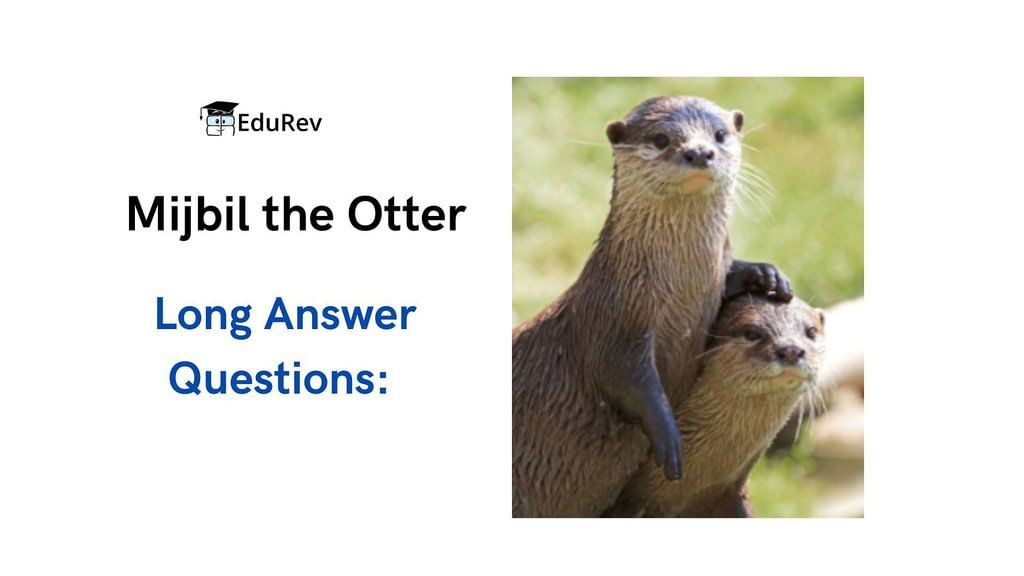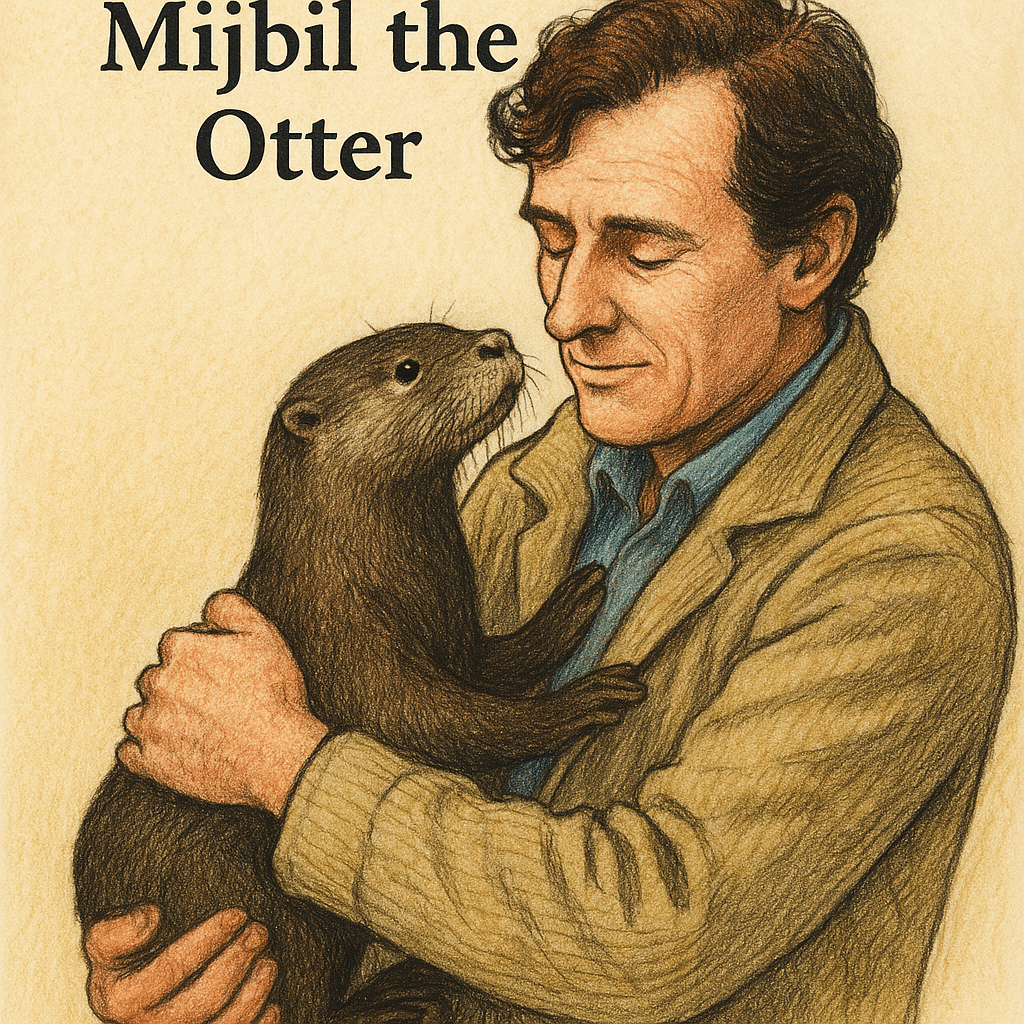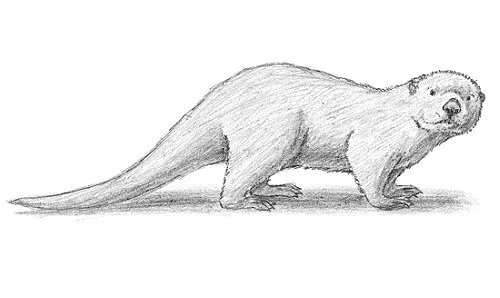Class 10 English Chapter 1 Question Answers - First Flight
Mijbil the Otter by Gavin Maxwell is a delightful recounting of his experiences with an otter named Mijbil. Maxwell’s life undergoes significant changes when he decides to adopt an otter as a pet instead of a dog, leading to a beautiful companionship full of surprising and joyful moments. The story highlights the bond between the narrator and his unique pet, as well as the challenges and joys that come with caring for an unusual animal.
Q1. Mijbil did things that demonstrated its personality. Which qualities of the narrator are shown in his care for Mijbil?
Ans:
Mijbil was an intelligent, playful, and joyful otter. He enjoyed water immensely, and when Maxwell took him to the bathroom, Mijbil became wild with joy, plunging and rolling in the water. Maxwell showed his affection and care for Mijbil by treating him like his own child. He gave him toys like marbles, rubber balls, and even a terrapin shell to play with. Maxwell was also observant of Mijbil’s habits, noticing his likes and dislikes. He encouraged Mijbil to do whatever made him happy, even taking him out for exercise. Maxwell’s devotion to Mijbil’s well-being is evident when, upon seeing blood on the otter, he was horrified and immediately took action to comfort him.
Q2. Why did Maxwell want to have an otter for a pet? How did he get one?
Ans:
Maxwell wanted an unusual pet after the death of his beloved dog, Jonnie. Feeling too sad to keep another dog, he decided an otter would be a more suitable companion. While traveling to Southern Iraq, Maxwell learned from a friend that otters were abundant in the Tigris marshes, so he decided to adopt one. His friend suggested that otters were often tamed by the Arabs, and with that knowledge, Maxwell went to Basra, where he received his mail and the otter from two Arabs. The otter was a gift from his friend, and it marked the beginning of a new chapter in Maxwell’s life.

Q3. What did Maxwell do to transport Mijbil to England?
Ans:
Maxwell initially faced difficulties with transporting Mijbil to England, as British Airways refused to fly animals. He then booked a flight to Paris with another airline, which insisted that Mijbil be packed into a box not more than eighteen inches square. Maxwell prepared a box for Mijbil and placed him inside an hour before the flight. However, when Maxwell returned, he was horrified to find blood around the box’s air holes, and Mijbil was exhausted and injured. Despite the urgency, Maxwell put Mijbil back into the box and rushed to the airport. Upon boarding, the stewardess, understanding the situation, allowed Maxwell to keep Mijbil on his knee for the journey to London, where the otter traveled safely.
Q4. Describe the relationship between the otter and Maxwell in your own words.
Ans:
Maxwell and Mijbil shared a warm, affectionate bond. Maxwell treated Mijbil with great care, giving him toys and allowing him to indulge in his love for water. He was attentive to Mijbil’s needs, noticing his quirks and encouraging him to engage in activities he enjoyed. Maxwell’s relationship with Mijbil was one of mutual respect and companionship. When Mijbil was hurt, Maxwell was immediately concerned, showing his protective nature. Over time, Mijbil became more friendly, gradually moving from being aloof to sitting on Maxwell’s lap, forming a deep emotional connection between them.
Q5. How did it come to the mind of the writer that an otter can be substituted for dogs or cats?
Ans:
Maxwell had a strong emotional attachment to his pet dog, Jonnie, but after Jonnie’s death, he couldn’t imagine getting another dog. During his travels in Southern Iraq, Maxwell learned from his friend that otters were as common as mosquitoes in the Tigris marshes, and they were often trained by the Arabs. Intrigued by the idea, Maxwell thought an otter would make a unique and suitable pet for him, especially because of his home’s proximity to water. His friend’s suggestion and the availability of otters led Maxwell to adopt one, starting a new chapter of companionship with Mijbil.

Q6. When did the author decide to have an otter as a pet? How did he get an otter?
Ans:
The author, Maxwell, decided to adopt an otter as a pet after the death of his dog Jonnie in 1956. His home in Camusfearna, surrounded by water, seemed like the perfect place for an otter. Maxwell shared his idea with a friend, who suggested that otters were abundant in the Tigris marshes in Iraq. After receiving advice from his friend, Maxwell traveled to Basra and received the otter from two Arabs. The otter, which Maxwell later named Mijbil, became his new companion.
Q7. How did the otter look when the author got it? What name did he give it? How did the otter enjoy being in the bathroom?
Ans:
When Maxwell first saw Mijbil, the otter resembled a small dragon covered in mud. After cleaning off the mud, Maxwell discovered that Mijbil had soft velvet fur underneath. He named the otter Mijbil and noticed that, like all otters, Mijbil had a natural love for water. When Maxwell took him to the bathroom, Mijbil went wild with joy, splashing and rolling in the water. He spent hours playing in the tub, making enough splash for a hippopotamus. Mijbil’s love for water became one of his most endearing qualities.
Q8. How did the author make arrangements for transporting his otter to London?
Ans:
Maxwell faced challenges when arranging to transport Mijbil to London. Since the British Airways didn’t accept animals, he booked a flight to Paris with another airline, which insisted that Mijbil be placed in a box measuring no more than eighteen inches square. Maxwell ensured Mijbil became accustomed to the box before their journey. However, upon returning from a meal, Maxwell was horrified to find Mijbil injured and bloodied inside the box. Despite the situation, Maxwell rushed to the airport, where he was allowed to keep Mijbil on his lap during the flight to London.
Key Vocabulary Box:
Thraldom: Being under control or influenced by something.
Fixation: A strong attachment or preoccupation.
Aloof: Distant, indifferent, or not friendly.
Apathy: A lack of interest or enthusiasm.
Compulsive habits: Habits that are difficult to control.
Ricochetting: A bullet or object bouncing off a surface.
Nuzzle: To rub or push gently with the nose.
If you want to make the most of your studies and get the grades you deserve, then EduRev is a perfect choice!
|
61 videos|617 docs|69 tests
|
FAQs on Class 10 English Chapter 1 Question Answers - First Flight
| 1. What is the main theme of the story "Mijbil the Otter"? |  |
| 2. How does the author describe Mijbil's personality in the story? |  |
| 3. What are some key events that take place in "Mijbil the Otter"? |  |
| 4. How does the author portray the idea of captivity in relation to Mijbil? |  |
| 5. What lessons can readers learn from "Mijbil the Otter"? |  |






















